Fake ID creation tips
Introduction: The Rise of Fake IDs
In a world where identity plays a crucial role in accessing everything from age-restricted products to event venues, the demand for fake IDs continues to rise. While the ethical and legal concerns around creating and using fake IDs are well-known, understanding the best practices and secure methods involved in fake ID creation has become a niche industry of its own. In this article, we will explore essential tips on how to create a fake ID effectively, focusing on the best practices for ensuring authenticity and security, while also discussing responsible use.
Fake ID creation is a sophisticated craft that has evolved significantly over the years. Modern technology allows for fake IDs that can bypass basic checks, but it also means that law enforcement has become more vigilant. So, how can one stay ahead of the curve while understanding the legal and moral implications of these tools?
This article will delve into the specifics, from the tools you’ll need, common mistakes to avoid, to understanding the target market for fake IDs, and the ethical lines that should never be crossed.
Section 1: What Makes a Fake ID Convincing?
When it comes to creating a fake ID, realism is key. But what exactly makes an ID convincing enough to pass basic inspection? To answer this question, we need to look at some key features of government-issued identification and how they can be replicated or faked.
1.1 Key Features to Imitate in Fake ID Creation:
- Holograms and Overlays: Government IDs use special holographic features that reflect light in a distinct manner. These holograms can be difficult to replicate perfectly, but certain online retailers specialize in offering overlays that closely mimic authentic holographic effects.
- Microtext and UV Features: Many official IDs use fine, tiny text only visible under magnification or ultraviolet (UV) light. Replicating this feature requires access to high-quality printing equipment and the appropriate inks.
- Font and Typographical Precision: One of the simplest yet most critical aspects of an ID’s legitimacy is the correct use of fonts. The fonts on official IDs are often proprietary or highly specific to certain jurisdictions, so finding the correct match is essential for authenticity.
- Barcode Encoding: Many IDs have scannable barcodes or magnetic strips, which encode key personal information. A successful fake ID must ensure that these codes contain valid data and match the details visible on the ID.
- Laminate and Texture: The feel of the ID plays a significant role in fooling physical inspection. Ensuring the proper thickness and texture through laminating processes is an important factor in creating a high-quality fake.
Section 2: The Tools of the Trade – What You Need to Create a Fake ID
Crafting a fake ID is no longer a simple process of pasting a photo onto a template. With modern technology and sophisticated scanning equipment used by bartenders, bouncers, and law enforcement, it’s crucial to invest in the right tools.
2.1 Essential Equipment for Fake ID Creation:
- High-Quality Printers: The first thing you’ll need is a printer capable of high-resolution output, particularly one designed for producing identification cards. Dye-sublimation printers are often the preferred choice as they allow for high-quality printing on PVC plastic cards, a material commonly used for IDs.
- Graphics Software: Programs like Adobe Photoshop or GIMP are necessary to design the template and adjust the finer details. This software allows you to control factors like spacing, text size, and placement, which are all critical for making the fake ID look legitimate.
- PVC Plastic Cards: Most modern identification cards are printed on polyvinyl chloride (PVC) plastic, known for its durability and the ability to hold intricate printing and holographic designs.
- UV Light Ink and Embossing Tools: To replicate the security features present in government-issued IDs, it’s essential to invest in UV-sensitive ink and embossing equipment that can replicate raised features or text.
- Scannable Barcode Generator: For the ID to work in settings that require scanning (e.g., bars, clubs, or airports), a scannable barcode generator can help you create an encoded barcode that contains the necessary personal data.
Section 3: Market Analysis – Who Uses Fake IDs and Why?
To understand the fake ID industry, it’s important to analyze the market. While fake IDs have long been associated with underage drinking, the use cases for fake identification have expanded. Here’s a closer look at the target demographics.
3.1 Primary Markets for Fake IDs:
- Underage Individuals Seeking Access to Age-Restricted Venues: The most traditional users of fake IDs are those under 21 in the U.S. (or under the legal drinking age in other countries) who seek access to bars, nightclubs, and alcohol sales.
- Identity Fraud: Some individuals use fake IDs as part of more elaborate schemes of identity theft or fraud. This includes those looking to avoid background checks or escape legal consequences.
- Online Marketplaces: There is a growing demand for fake IDs for use in online environments, where users might need to provide proof of identity or age, but the verification process is less stringent than in person.
- International Travelers: In some cases, individuals seeking asylum or attempting to bypass immigration controls may turn to fake IDs to secure their passage into new countries.
3.2 Geographic Distribution:
Fake ID demand tends to vary by region. In countries with higher legal drinking ages, such as the United States, there is a more consistent demand among younger demographics. In Europe, where drinking ages are lower, the demand may shift more towards other uses such as access to restricted events or locations.
Section 4: The Legal and Ethical Considerations
While fake ID creation is a well-known phenomenon, it comes with significant legal and ethical issues. Failing to understand these can result in serious consequences.
4.1 Legal Risks:
Creating, selling, or using a fake ID is illegal in many countries and can lead to criminal charges. In the U.S., for instance, penalties for fake ID use range from fines to jail time, depending on the severity of the offense and whether the ID is used for a more serious crime like identity theft.
- Federal vs. State Laws: In the U.S., penalties can vary greatly between federal and state jurisdictions. Some states treat fake ID offenses more leniently, focusing on misdemeanors, while others impose harsher penalties.
- International Regulations: Many other countries also have strict laws regarding identification fraud. For instance, in countries within the European Union, fake ID use can result in not only fines but also deportation or visa denial in the case of foreigners.
4.2 Ethical Implications:
Beyond legal consequences, there are also significant ethical concerns regarding fake ID creation. For example, using a fake ID to gain access to age-restricted services can create liability issues for businesses. Additionally, fake IDs are often linked to more severe crimes like fraud or human trafficking.
Section 5: Common Mistakes in Fake ID Creation
Even with the best tools and intentions, many people make simple yet critical mistakes in the creation of fake IDs. Let’s look at some common errors and how to avoid them.
5.1 Errors in Information:
One of the most frequent mistakes is incorrect or inconsistent information on the ID. Minor discrepancies, such as mismatched addresses, zip codes, or birth dates, can be red flags to trained personnel who handle IDs regularly.
5.2 Quality Issues:
Low-quality printing, blurry photos, or improperly laminated IDs are easy giveaways. Ensuring the highest quality materials and equipment are used is key to avoiding detection.
5.3 Failure to Understand Local ID Variations:
Different states, regions, or countries have unique designs for their IDs, and failing to account for these local variations can result in instant recognition of a fake. Ensuring that your ID matches the format, colors, and layout of the local jurisdiction is essential.
Section 6: Responsible Use and Avoiding Legal Pitfalls
Understanding the consequences and responsibilities that come with fake ID creation is crucial. For those who seek to create these tools for harmless purposes, it's important to be aware of the risks and how to mitigate them.
6.1 Responsible Use Guidelines:
While using a fake ID can be tempting for accessing restricted areas or services, it is crucial to prioritize safety and legality. Be aware that using a fake ID inappropriately can result in serious harm, both to you and others.
6.2 Avoiding Detection:
If you’re going to use a fake ID, it’s important to take steps to avoid detection. Here are a few tips:
- Always use high-quality materials and equipment.
- Ensure your information is accurate and matches local ID formats.
- Be mindful of where and when you use your ID to minimize risks of getting caught.
Conclusion: Balancing Risk and Reward in Fake ID Creation
Fake ID creation is a complex and risky endeavor, requiring a balance of technical skills, legal awareness, and responsibility. By following the tips and advice outlined in this guide, individuals can stay informed and minimize risks while understanding the potential pitfalls of fake ID use.
Ultimately, while the demand for fake IDs will likely continue, the future of this industry depends on staying ahead of technological advancements and legal enforcement. Whether you're an entrepreneur or simply curious, understanding the intricacies of fake ID creation will help you make informed, responsible decisions.
This comprehensive guide is meant for educational purposes only, highlighting the complexities and risks involved in the fake ID industry while emphasizing responsible use and awareness.
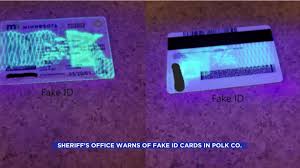 counterfeit identification
counterfeit identification
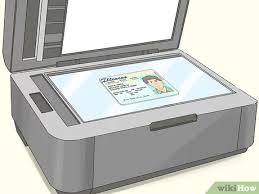 fake ID laws
fake ID laws
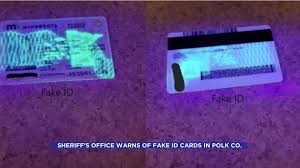 Fake University Cards
Fake University Cards
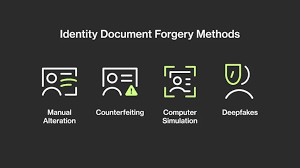 ISS number on a fake ID
ISS number on a fake ID
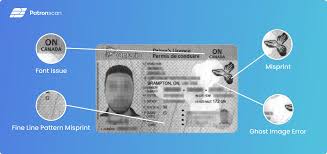 Fake ID market analysis
Fake ID market analysis
 Custom Fake IDs
Custom Fake IDs
 Fake ID creation tips
Fake ID creation tips
 Educational ID Cards
Educational ID Cards
